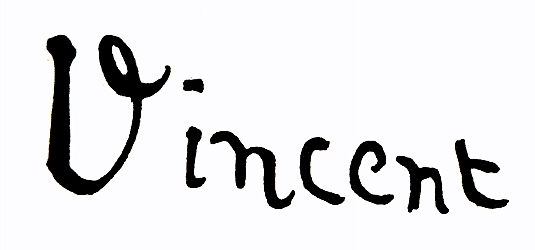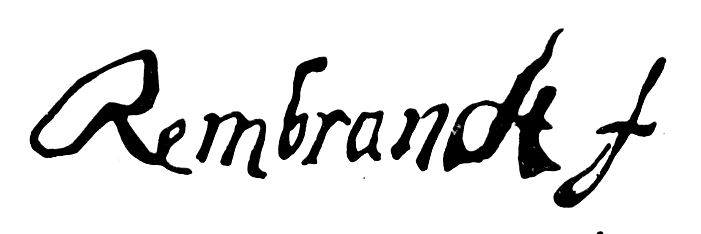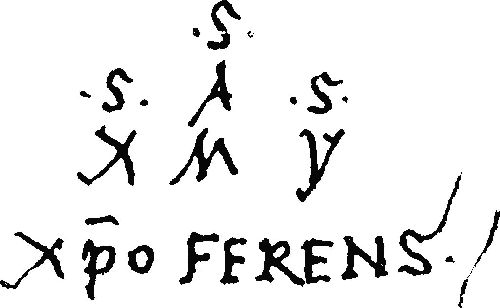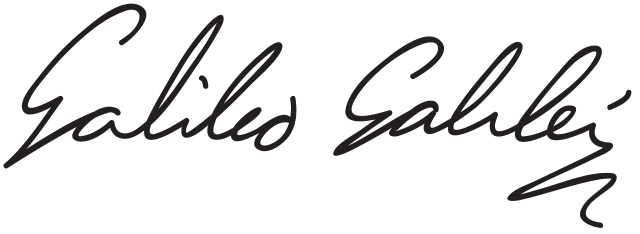Understanding the Lives Behind Famous Signatures
Each signature carries the essence of an individual. In this article, we delve into the lives behind some of the most recognizable and “famous signatures,” offering you a journey through the chapters of history.
Masters of Pen: Icons of Literature and Writing
William Shakespeare
One cannot discuss literature without acknowledging the towering figure of William Shakespeare. Known as the Bard of Avon, his prolific works, including “Romeo and Juliet,” “Macbeth,” and “Hamlet,” have shaped English literature and language. His timeless themes, vivid characters, and profound insights into the human condition continue to captivate readers and audiences globally, ensuring his relevance through the centuries. Yet, while his literary contributions are undeniably monumental, the man behind these masterpieces remains shrouded in mystery and intrigue. The article, Shakespeare Unmasked: Life Beyond Literature, delves into the personal world of Shakespeare, shedding light on the man’s life away from the quill and stage.

Charles Dickens
Charles Dickens, the eminent Victorian novelist, wielded his pen to highlight the social ills of his time. With novels like “Oliver Twist,” “David Copperfield,” and “Great Expectations,” he drew attention to poverty, class disparity, and social reform. His realistic, empathetic portrayals of characters have made his works enduring classics. To delve deeper into his life and literary achievements, check out the article Charles Dickens: The Man Behind the Classics. This comprehensive piece offers a closer look at the genius that was Dickens.

Ralph Waldo Emerson
Ralph Waldo Emerson, the father of American Transcendentalism, left an indelible mark with his philosophical essays such as “Self-Reliance” and “Nature.” His ideas on individualism, spirituality, and the inherent goodness of people and nature were revolutionary, inspiring generations of thinkers and writers. For those interested in a deeper dive into Emerson’s profound influence, the article Emerson’s Luminous Legacy in American Thought provides an insightful exploration of his lasting impact on American intellectual history.

Victor Hugo
Victor Hugo, a literary giant of the French Romantic movement, used his writings to champion social causes. His novels like “Les Misérables” and “The Hunchback of Notre-Dame” spotlight the plights of the poor and marginalized, conveying a powerful message of human dignity and resilience. For those keen on exploring the intricacies of Hugo’s life and his profound influence on literature, the article Journey Through the Life of Victor Hugo offers a comprehensive overview of his remarkable journey.

J.R.R. Tolkien
John Ronald Reuel Tolkien, better known as J.R.R. Tolkien, transported us into the incredible world of Middle-earth through his epic works “The Lord of the Rings” and “The Hobbit.” His richly detailed fantasy universe, populated with complex characters and languages, has had an immense influence on the fantasy genre. If you’re eager to explore the depth of his literary contributions and his lasting impact on the world of fantasy, the article Journey Through J.R.R. Tolkien’s Legacy provides a thorough examination of his enduring legacy.

Walt Whitman
Walt Whitman, the poet of democracy, heralded a new era in American literature with his groundbreaking collection “Leaves of Grass.” His free verse style and celebration of the individual, nature, and the American experience have made him a cornerstone of American poetry. For those yearning to delve deeper into the life and creative genius of this iconic poet, the article The Life and Legacy of Walt Whitman offers a comprehensive look into his inspiring journey and indelible influence on the literary world.

Edgar Allan Poe
Edgar Allan Poe, the master of the macabre, has left an enduring legacy in the realm of horror and detective fiction. Known for his poems like “The Raven” and stories like “The Fall of the House of Usher,” his exploration of the dark, eerie, and mysterious aspects of human psychology has inspired countless authors. For those intrigued by the enigma surrounding Poe and his works, the article Unraveling the Mysteries of Edgar Allan Poe delves deep into his life, influences, and the haunting beauty of his literary masterpieces.

Ernest Hemingway
Ernest Hemingway, Nobel laureate and one of the most influential writers of the 20th century revolutionized literature with his minimalist style and iceberg theory. His novels like “The Old Man and the Sea” and “A Farewell to Arms,” filled with themes of heroism, masculinity, and existentialism, continue to be widely read and studied.

Samuel Clemens (Mark Twain)
Samuel Clemens, known by his pen name Mark Twain, is celebrated as the greatest humorist in American literature. His works like “Adventures of Huckleberry Finn” and “The Adventures of Tom Sawyer” are renowned for their satirical wit, insightful social criticism, and depiction of American life along the Mississippi River.

Jane Austen
English novelist Jane Austen is renowned for her sharp social commentary, astute character portrayals, and exploration of themes such as marriage, gender, and social class. Her novels, including “Pride and Prejudice,” “Emma,” and “Sense and Sensibility,” have become timeless classics, celebrated for their wit, irony, and keen observations on human nature.

George Orwell
George Orwell, a prominent author, and journalist, is remembered for his powerful works highlighting totalitarianism and authoritarianism. His dystopian novels “1984” and “Animal Farm” serve as cautionary tales against the dangers of absolute power, propounding the enduring themes of individual freedom and truth.

F. Scott Fitzgerald
F. Scott Fitzgerald, a leading figure of the Jazz Age, captured the spirit of the Roaring Twenties in his novels. His most famous work, “The Great Gatsby,” is a seminal critique of the American Dream, depicting a society marked by wealth, decadence, and disillusionment.

Virginia Woolf
Virginia Woolf, a central figure of modernist literature, is celebrated for her innovative narrative techniques and exploration of consciousness. Her works, including “Mrs. Dalloway” and “To the Lighthouse,” offer profound insights into the human psyche, gender dynamics, and the nature of art and reality.

Leo Tolstoy
Russian author Leo Tolstoy, one of the greatest novelists in literature, is renowned for his epic works “War and Peace” and “Anna Karenina.” His profound exploration of human nature, social structures, and moral philosophy, coupled with his masterful storytelling, continues to inspire and influence writers and readers alike.

Fyodor Dostoevsky
Fyodor Dostoevsky, another titan of Russian literature, left an indelible mark with his profound psychological novels, including “Crime and Punishment” and “The Brothers Karamazov.” His exploration of human psychology, morality, and existentialism, set against the backdrop of 19th-century Russia, has earned him worldwide acclaim.

James Joyce
Irish author James Joyce revolutionized narrative structure with his works, including “Ulysses” and “Dubliners.” His innovative use of stream-of-consciousness, complex characters and vivid portrayal of Dublin society have made him one of the most influential writers of the 20th century.

Harper Lee
Harper Lee, the author of “To Kill a Mockingbird,” used her storytelling to tackle themes of racial injustice, morality, and the loss of innocence. Her portrayal of the courageous lawyer Atticus Finch and his young daughter Scout in the racially charged American South has left a profound impact on readers worldwide.

Politics and Leadership
Winston Churchill
Sir Winston Churchill, a prominent British statesman, and orator, served as the UK’s Prime Minister during the pivotal period of World War II. His unyielding determination, rousing speeches, and visionary leadership were instrumental in rallying the British spirit during the Battle of Britain and beyond. But Churchill was not just a wartime leader; he was a multifaceted individual with a rich tapestry of experiences, talents, and interests that spanned beyond the political and military arenas. Exploring the Lesser-Known Facets of Winston Churchill takes readers on a journey into this iconic figure’s private, personal, and often unexpected sides, revealing a man of complexity and contrast.

Mahatma Gandhi
Mahatma Gandhi, the father of the Indian nation, is celebrated worldwide for his philosophy of nonviolent resistance or “Satyagraha”. Gandhi’s tireless pursuit of Indian independence from British rule, and his commitment to peace, equality, and justice, have left an enduring legacy in the annals of freedom movements.

Nelson Mandela
Nelson Mandela, South Africa’s first black president, is revered globally as a symbol of resistance against racial segregation. His unwavering fight against apartheid, long imprisonment, and subsequent efforts in fostering reconciliation in post-apartheid South Africa epitomizes his commitment to justice and equality.

Margaret Thatcher
Margaret Thatcher, known as the ‘Iron Lady’, was Britain’s first female Prime Minister. Known for her conservative politics and her determination to implement free-market policies, Thatcher was a pivotal figure in reshaping Britain’s economic and political landscape in the 20th century. To delve deeper into her influential tenure and the challenges she faced, the article Margaret Thatcher: Britain’s First Female Prime Minister provides a comprehensive examination of her journey and her enduring legacy.

Franklin D. Roosevelt
Franklin D. Roosevelt, or FDR, is one of the most influential presidents in U.S. history. He led the nation through the trials of the Great Depression and World War II with his New Deal economic policies and his “fireside chats” that helped to instill a sense of hope and unity among the American people.

Theodore Roosevelt
Theodore Roosevelt, a conservationist, soldier, and 26th President of the United States is admired for his vigorous personality and leadership style. His notable achievements include the creation of the National Parks system and the Panama Canal, along with his commitment to progressive reforms.

Martin Luther King Jr.
Dr. Martin Luther King Jr., a prominent leader of the Civil Rights Movement in the United States, is renowned for his commitment to nonviolent protest in the fight against racial discrimination. His “I Have a Dream” speech remains one of the most famous speeches in American history.

Queen Victoria
Queen Victoria, renowned as the second-longest reigning monarch in British history, presided over the transformative Victorian era marked by industrial, cultural, and scientific advancements. Her illustrious reign saw the expansion of the British Empire and noteworthy progress in technology and social reform. For a comprehensive understanding of the interlacing European relations during Victoria’s reign, delve into this valuable resource: Victoria’s Reign: Interlacing European Relations. By exploring the complexities of European diplomacy and interactions during that period, you can gain deeper insights into the impact of her reign on the broader European stage.

Arts and Entertainment
William Blake
William Blake was an influential figure in the Romantic Age known for his creative endeavors in poetry and painting. His radical visions and mystical works, such as “Songs of Innocence and Experience”, remain significant sources of inspiration in the literary and visual arts.

Pablo Picasso
One of the most famous artists of the 20th century, Pablo Picasso, made significant contributions to the world of art, including the invention of constructed sculpture and collage as an artistic process. His work spans various styles, most notably the Blue Period, Rose Period, and Cubism.

Vincent van Gogh
Vincent van Gogh, a Dutch post-impressionist painter, is remembered for his unique style and prolific output. Despite facing mental health issues throughout his life, he produced some of the world’s most renowned works of art, including “Starry Night” and “Sunflowers”.

Leonardo da Vinci
Leonardo da Vinci, a true Renaissance man, is renowned for his contributions to art, science, and technology. His iconic works “Mona Lisa” and “The Last Supper” are among the most famous and influential artworks in Western art history. For an in-depth exploration of his multifaceted genius and how he epitomized the spirit of the Renaissance, peruse the article Leonardo da Vinci: Renaissance Man & Universal Genius. This piece illuminates the depth and breadth of his unmatched brilliance.

Wolfgang Amadeus Mozart
Wolfgang Amadeus Mozart, a prolific and influential composer of the Classical era, composed hundreds of works that include symphonies, operas, solo concertos, and chamber music that significantly shaped classical music. His work, such as “The Magic Flute” and “Requiem”, showcases his profound understanding of musical forms.

Claude Monet
Claude Monet, a founder of French Impressionist painting, is best known for his development of plein-air landscape painting. His paintings, including his Water Lilies series and “Impression, Sunrise”, demonstrate his innovative use of color and light.

Charlie Chaplin
Charlie Chaplin, one of the most pivotal stars of the early Hollywood era, left a profound impact on cinema with his iconic character “The Tramp”. His films, which combine humor, pathos, and social commentary, continue to be celebrated and studied. For a deeper dive into the life, artistry, and enduring influence of this cinematic genius, explore the article Charlie Chaplin: The Man Behind The Legend. It paints a vivid portrait of the man who changed the face of comedy forever.

Alfred Hitchcock
Alfred Hitchcock, the “Master of Suspense”, is regarded as one of the most influential filmmakers in the history of cinema. His iconic films, such as “Psycho”, “Rear Window”, and “North by Northwest”, have shaped the thriller genre.

Marilyn Monroe
Marilyn Monroe, one of the most popular sex symbols of the 1950s, was a significant figure in changing attitudes toward sexuality. Her roles in movies like “Some Like It Hot” and “The Seven Year Itch” established her as a comedic talent and a Hollywood icon.

Louis Armstrong
Louis Armstrong, a foundational figure in jazz music, is celebrated for his charismatic stage presence and powerful, innovative trumpet playing. His influence is heard in all corners of jazz, from his scat singing to his unmatched sense of rhythm and improvisation.

Historical Figures
John Wilkes Booth
John Wilkes Booth is a notorious figure in American history, best known for his assassination of President Abraham Lincoln in 1865. A prominent stage actor before he committed his infamous act, Booth was a Confederate sympathizer who held a deep resentment for Lincoln and his policies.

Robert E. Lee
Robert E. Lee, a commander of the Confederate States Army during the American Civil War, is remembered for his military prowess and his leadership. Despite his post-war reputation being a subject of polarizing debate, his battlefield tactics continue to be studied.

Johann Sebastian Bach
Johann Sebastian Bach, a German composer and musician of the Baroque period, is known for instrumental compositions such as the Brandenburg Concertos and the Goldberg Variations. His music, revered for its intellectual depth, technical command, and artistic beauty, has influenced generations of composers.

William Penn
William Penn was an English Quaker leader and advocate for religious freedom who founded the Province of Pennsylvania. His democratic principles formed the basis of the U.S. Constitution and his treaty with the Lenape people is one of the longest unbroken treaties in U.S. history.

Rembrandt Harmenszoon van Rijn
Rembrandt Harmenszoon van Rijn, a Dutch draughtsman, painter, and printmaker, is generally considered one of the greatest visual artists in the history of art. His contributions to art came in a period of great wealth and cultural achievement known as the Dutch Golden Age when Dutch art was extremely prolific and innovative.

Christopher Columbus
Christopher Columbus, an Italian explorer, is credited with opening the New World to European exploration, which significantly impacted the course of world history. Despite controversies surrounding his expeditions, his voyages remain a pivotal moment in Western history.

Galileo Galilei
Galileo Galilei, an Italian astronomer, physicist, and engineer, is dubbed the father of observational astronomy, the father of modern physics, and the father of the scientific method. His discoveries with the telescopic led to his support for the Copernican theory that the earth and planets revolved around the sun, which was a seminal moment in the history of science.

Isaac Newton
Sir Isaac Newton, an English mathematician, physicist, and astronomer, is widely recognized as one of the most influential scientists of all time. His formulation of the laws of motion and universal gravitation laid the groundwork for classical physics.

Marie Curie
Marie Curie, a physicist, and chemist, conducted pioneering research on radioactivity, a term she coined. She was the first woman to win a Nobel Prize, and she remains the only person to have won Nobel Prizes in two different scientific fields—Physics and Chemistry.

Albert Einstein
Albert Einstein, a German-born theoretical physicist, is celebrated as one of the pillars of modern physics. His theory of relativity revolutionized the understanding of space, time, and gravity. His equation, E=mc², which reveals the equivalence of energy (E) and mass (m), is one of the most famous in the world.

That concludes our exploration of these famous signatures across various fields. Remember, understanding these figures and their contributions isn’t just about recognizing their names, but about appreciating the context, the accomplishments, and the human stories behind those names. At the intersection of history and architecture, exploring famous signatures can lead us to remarkable discoveries. One such exploration takes us to the charming Bolduc House, which stands as a testament to French colonial heritage in the Americas. It’s what makes history come alive.
📎 Related Articles
1. Navigating the World of Autograph Collection
2. The Northwest Oral History Association: Our Mission, Standards, and Membership Benefits
3. Delving into Historical Chinese Drama: An Educational Guide
4. History and Legends: Where Fact Meets Fiction
5. Chronicles from the Past: An Exploration of Historical Fiction Books

